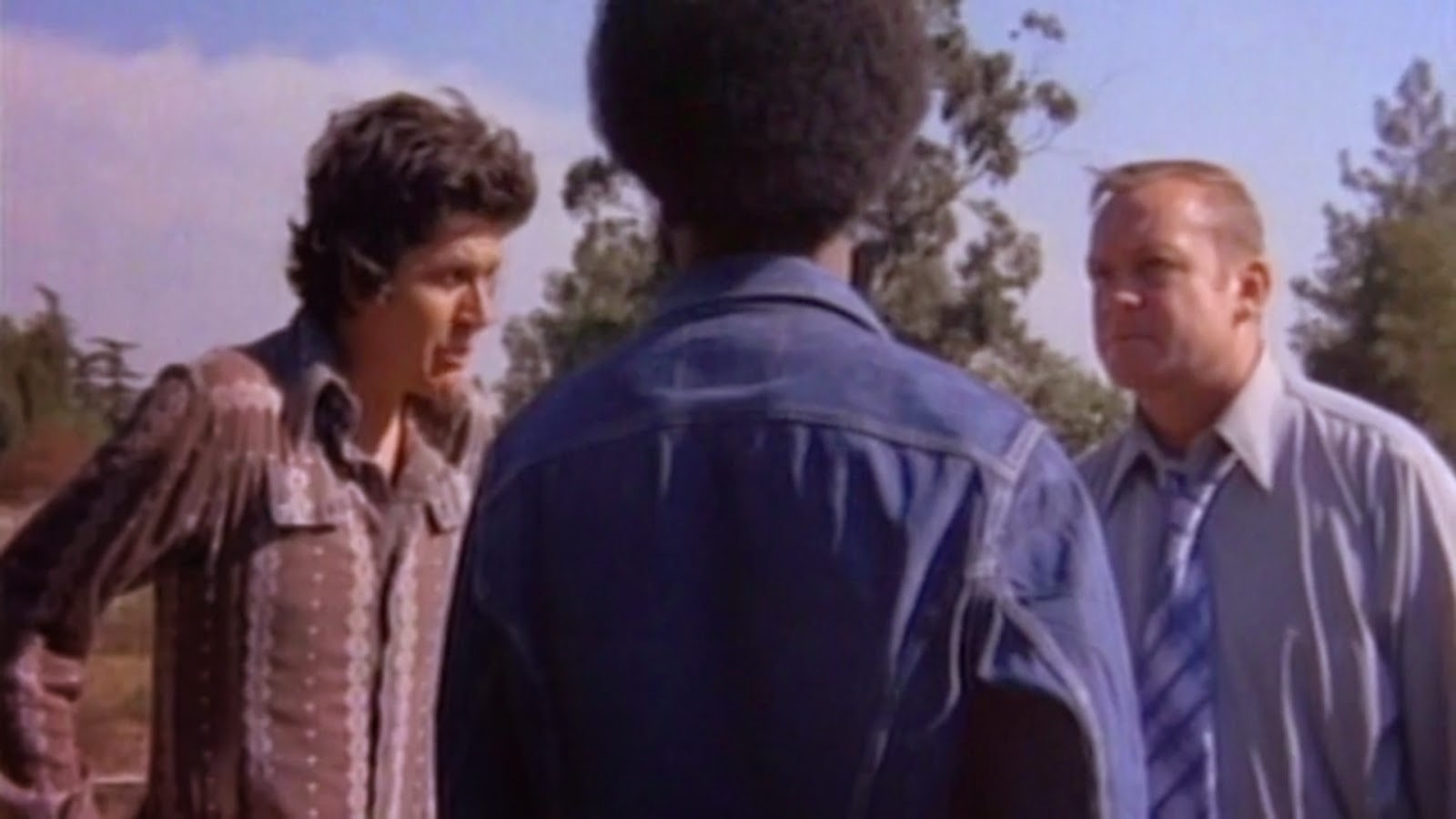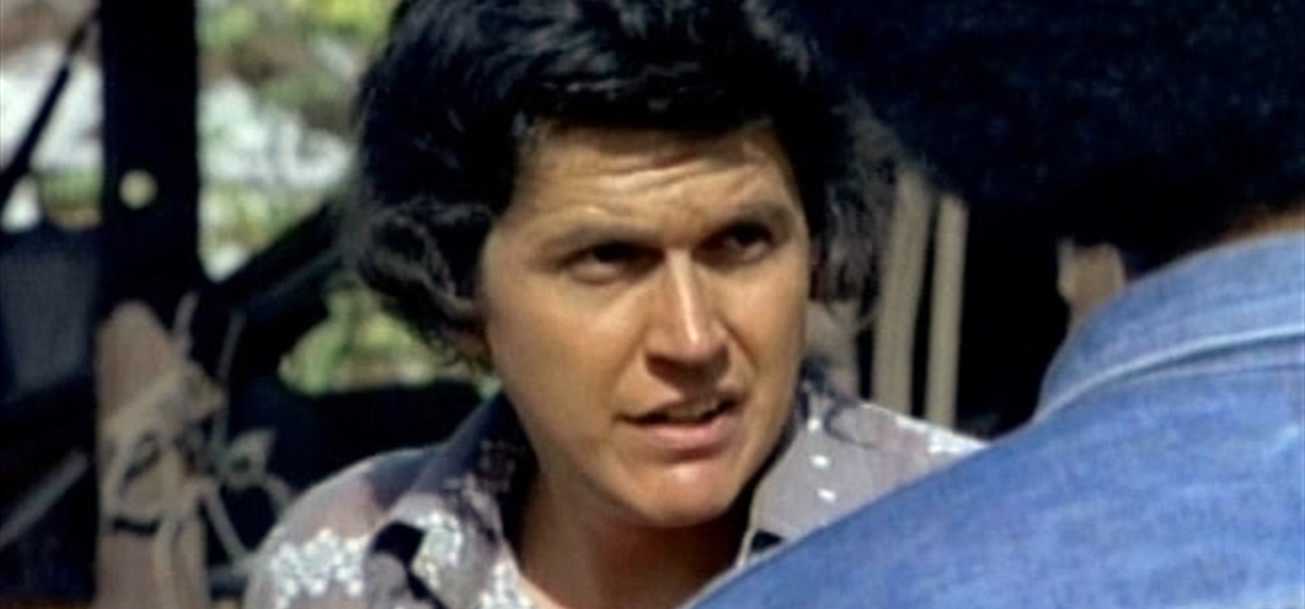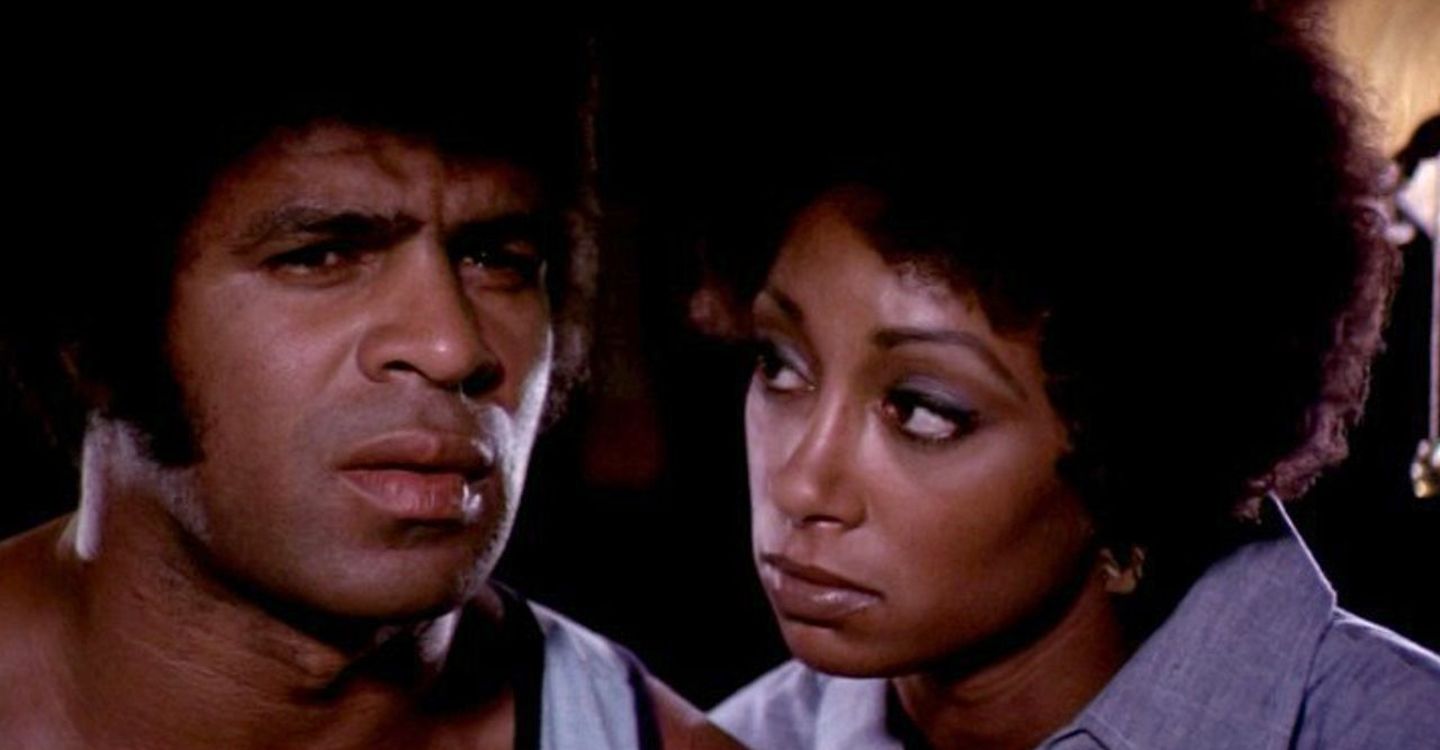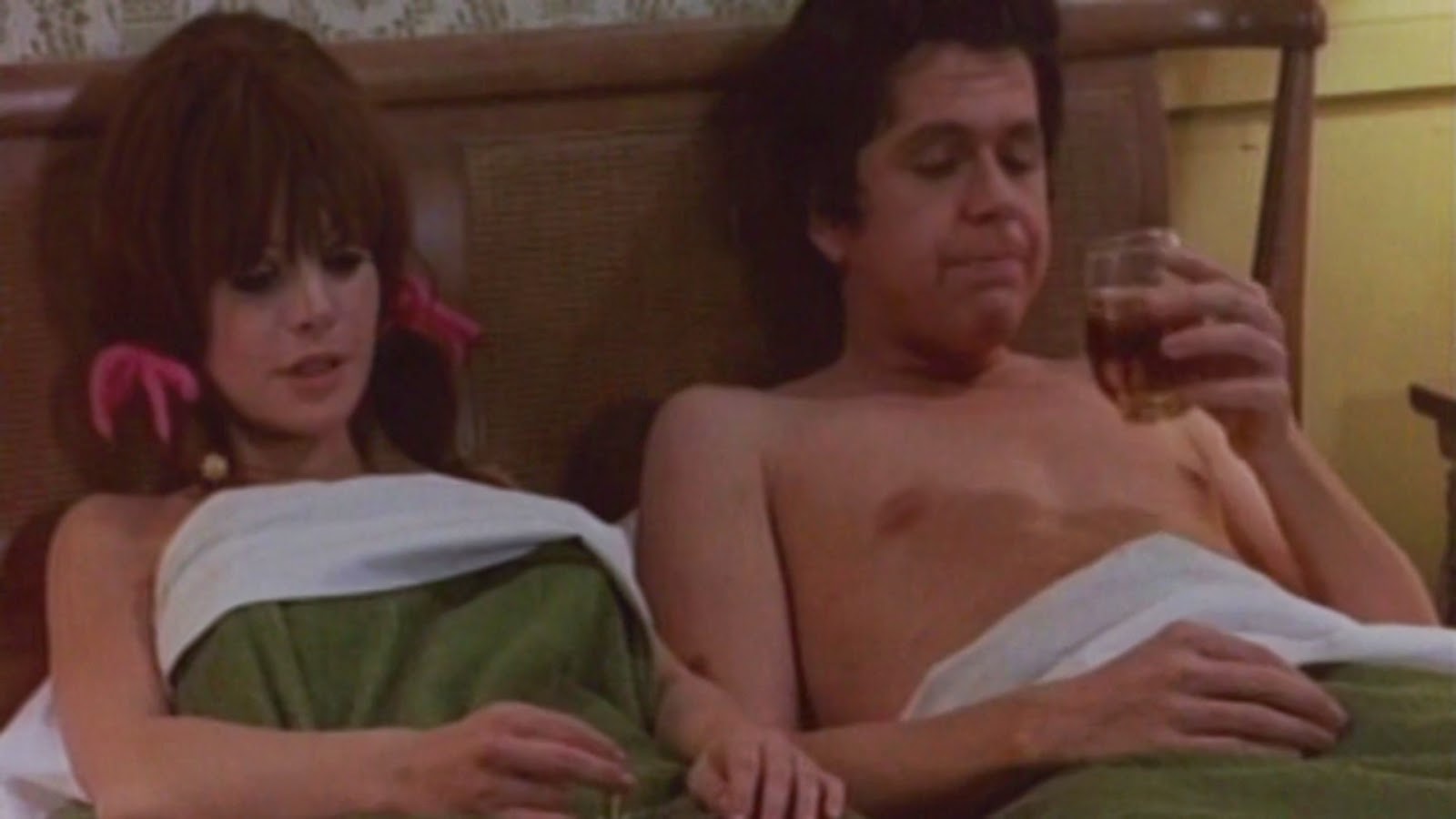THE BAD BUNCH (aka All Lives Matter: The Movie)

February is Black History Month and the horror community has also labeled it Women in Horror Month, so there is no shortage of great selections for our Friday Fights in February… yet, I failed… and hard. 1973’s The Bad Bunch aka Tom aka All Lives Matter: The Movie (of course, that one’s my title not theirs) isn’t a good film, not even by exploitation film standards. In fact, it’s little more a perpetuation of bad stereotypes and an embodiment of a white savior complex. However, I do believe there is a legitimate attempt at something more.

Let’s first start with why I chose this film. In honor of Black History Month, I wanted to cover a blaxploitation film. I’m a blaxploitation fiend and will be covering some (much better) titles in the coming weeks. I mostly chose The Bad Bunch because it was a blaxploitation title I hadn’t seen and one that was readily available on Amazon Prime. Also, there was its Wikipedia plot summary:
The film is a study of prejudice and discrimination. It tells the story of a black gang who run the streets of Watts and of Jim, a white man, who tries to befriend them. Prejudice stands in the way of any friendship and turns black against white in a mid 70s, does much to show how society has progressed, but to some it may seem that “the more things change, the more they stay the same.”
Despite this plot summary and, what I thought, was an earnest attempt at making a film about race relations and the consequences of blind hat, the film misses the mark by miles. Think of the filmmaker as the friend you have who asserts that “Black Lives Matter” is racist because “All Lives Matter”… but this friend isn’t an out and out bigot, he’s well meaning but exorbitantly ignorant. Greydon Clark, the film’s writer/director/co-star, seems to be this ultra-ignorant social justice warrior type whose motto is “why can’t we all just get along?” because he doesn’t understand where black anger comes from or what white privilege is.
With all the great blaxploitation films I could and have have chosen, this is unfortunately the one I chose. Yet, seeing how ignorant and confused the characters, as well as the filmmakers, are helps to bring about a good lesson in today’s time. It’s a direct correlation to the people whose misunderstandings and fears were preyed upon by the Trump campaign… and we all know how that turned out. Confronting this type of ignorance is important, so understanding it first is equally important; maybe watching a film created by a mind like the ignorant and not always knowingly malevolent “All Lives Matter” crowd that comprises much of the Trump coalition of support.

And with that… I hand you over to the team…
 GARRETT SMITH: The movie I watched for this week’s Friday Fight was called The Bad Bunch and was about a white man named Jim that gee golly, just couldn’t seem to understand why black and white people couldn’t just get along, and ends up being murdered by a crazed black man, who leads a “bad bunch” of black men, just for trying to defend that black man and call him his friend.
GARRETT SMITH: The movie I watched for this week’s Friday Fight was called The Bad Bunch and was about a white man named Jim that gee golly, just couldn’t seem to understand why black and white people couldn’t just get along, and ends up being murdered by a crazed black man, who leads a “bad bunch” of black men, just for trying to defend that black man and call him his friend.
But when I looked this movie up on IMDb, all I could find was a film called Tom that was about a black man named Tom that was living in poverty in California and had lost a brother to the Vietnam war, serving a country that afforded neither him nor his family any opportunity to improve their station in life. When a white man that served with Tom’s brother shows up looking to alleviate his own guilt over the Vietnam war and give his condolences to their father, Tom takes out generations of anger on him, which only results in police brutality for himself and his comrades. And when that white man won’t give up on trying to prove to Tom that they are equals and gee golly, they should just be able to get along, Tom’s rage bubbles over into a violent, unforgivable act, finally damning him for having been black in America.
Tom is a much better (though still problematic) movie than The Bad Bunch. If you’re going to watch The Bad Bunch on Amazon Prime, which I would recommend despite the white savior lens through which it’s told, just pretend the title card says Tom instead.

 JACOB GEHMAN: There’s something subversively delicious about The Bad Bunch’s ending. Whatever bumps in the road came before get smoothed over for an epic throwdown between our main parties. There’s a sense of hopelessness to the violence – a violence that shows crackling racial tensions. A hopelessness as each of our main characters finds themselves knocking on heaven’s door. It’s an ending that the whole arc of the film promised, yet somehow still shocks for its brash dedication to fulfilling that promise.
JACOB GEHMAN: There’s something subversively delicious about The Bad Bunch’s ending. Whatever bumps in the road came before get smoothed over for an epic throwdown between our main parties. There’s a sense of hopelessness to the violence – a violence that shows crackling racial tensions. A hopelessness as each of our main characters finds themselves knocking on heaven’s door. It’s an ending that the whole arc of the film promised, yet somehow still shocks for its brash dedication to fulfilling that promise.
On the one hand you’ve got a group of black men who feel intruded upon by the white men they hate. On the other you’ve got a white man who seems keen to prove himself a friend to these men. And in between you’ve got a cop duo, who hate black men, and aren’t fond of white men who try to befriend black men. In the course of the film these three parties find themselves in a series of miscommunication, assumptions, and general ignorance.
None of the three parties really knows what’s going on; they’re all working from a set of assumptions that they believe to be fact.. Fact: White men rat out black men to the cops. Fact: Black men appreciate the kindness of white men. Fact: There’s no reformation, all you can hope is to keep them behind bars as long as possible.
All these “facts” get thrown into a blender, which spews out the expected cinematic conclusion: A takeout of the white man, and a slaughterfest between black man and cops. It’s glorious. And it’s only glorious because the preceding 70 minutes of film is dedicated to making every major character seem terrible.
Honestly, little in cinema is more enticing than a terrible character getting their comeuppance. In that regard, it’s a truly satisfying film.
 Salim Garami returns as our guest on Friday Fight. Angrier than ever… and at me (Justin)… which is totally fine, because his reasoning is sound. As noted above, this is not a good selection for Black History Month, but it surely is food for thought. Blame me all you want, but I still blame the Wiki plot summary, Salim!
Salim Garami returns as our guest on Friday Fight. Angrier than ever… and at me (Justin)… which is totally fine, because his reasoning is sound. As noted above, this is not a good selection for Black History Month, but it surely is food for thought. Blame me all you want, but I still blame the Wiki plot summary, Salim!
Salim’s work can be read at Movie Motorbreath.
Oh my God, I want the head of the dude who suggested this for Black History Month.
As a general rule, I am ALWAYS wary of movies about race relations made by white men. They frequently have a self-satisfied attitude of having fixed racism in America for some reason and at a complete divide from recognizing racism is a spectrum and that it’s easy for any one of us to fall into being that sort of bigoted individual. They always rush to blame “Oh, it’s THOSE kind of white guys who are racist. Us good white people are NEVER racist.”
Especially when they have the white savior complex of a white guy coming in to save the poor black folk from themselves, attempting to martyr a white man for the sins of black folk.
And when that white savior is played by the director of the movie… oof. All the fucking worst, this is a total vanity project.
Y’know, I could have totally bought it as a still terrible yet better-minded attempt to sift through the post-Vietnam veteran experience (still grossly negligent on the psychological distress that takes on, assuming it all is fixed by strip club visits) if it stuck to that. It’s clearly much more interested in being a star vehicle for Jim than for focusing on Makimba’s (“Tom is my slave name”, he denounces and why not?) struggle with the authorities, relegating his sudden capture and torturous interrogation off-screen. But holy shit, this isn’t what it has on its mind. It ends with a Martin Luther King quote after demonizing the hell out of organized Afro-Americans. Now I don’t give a fuck if Greydon Clark marched with MLK, that’s some tasteless fucking shit.

No, the movie makes clear what it has on its mind from the very first scene, Clark and Robert Munk as Jim and Clay respectively, a white and black man standing in the middle of a bright All-American field pretending it’s the jungles of Vietnam and not an anonymous back highway of Los Angeles. Jim goes on to whitesplain how wrong it is that Clay will be treated harshly back home in America once they return from the war, telling Clay nothing he didn’t already fucking know. I don’t think Clark really planned on Munk’s very daggers-shooting scowl after Jim says “I can’t believe that,” while Clay mutters back “I can believe it, I lived it.” Suddenly, Clay is shot dead, because he needs to be dead for the movie to quickly return to LA where they don’t have to give away that they didn’t shoot in Vietnam Jim tries to connect with Clay’s father (Fred D. Scott) and brother born Tom and rechristened Makimba (Tom Johnigarn). Jim wants to be Makimba’s friend in the vaguest terms possible, refusing to recognize that Makimba doesn’t want to be his friend.
Why? Could be how every time Jim is around him, the police come running. That Jim is a reminder of Makimba’s brother being drafted and killed in the imperialist Vietnam War (of which this movie seems to pretend opposition is also villainous). Because white men who try to be “friends” with Makimba turned out to just want to use or abuse him. All clear probabilities in ‘Nam-era America.
No, the film does not want to complicate itself with the psychological complexities of Makimba’s attitude – his refusal to be Jim’s friend means he’s fully integrated into the “bad bunch”, the biggest sign that Clark’s definition of black militants is “black gangs with good words”. And besides we need more screentime for Clark surrounding himself with as many topless women as he can and talking about going to school like he’s not a 30-year-old who looks like he’s 35, his milquetoast unconflicted veteran experience where all he has to worry about is when to marry his girlfriend and what college to go to.
This movie is just making Makimba look like an idiot and all his militant black friends like punks who are more interested in bullying white men than protecting themselves from crooked police officers. Makimba is constantly in a spot where he can see Clay is not directly involved in his misfortunes, but the script contrives him to make superhuman logical leaps that Clay is responsible for the world’s suffering and that he must have a one-track mind to kill Clay. It’s not just bad writing, it’s morally reprehensible that crafts your one black lead with an opportunity to be played as a human being (and Johnigarn unfortunately is stuck on a neutral angry that he can’t shake off) and show what oppression does to a mindset or a personality and turns him into a black Terminator or Anton Chigurh. Is this supposed to be the race appeal Clark took serious – OH LOOK, A POOL PARTY! 😀 lol oh them colored men and white womernz.
And I wrote this far without acknowledging that every single actor – including Clark – looks to be picked up right off the street with no skill beyond Scott’s theatrical pathos as Clay’s grieving and aged father trying to deal with the memory of his son despite how painful it is and Makimba’s renouncement of Clay. Nevermind that it’s shot and recorded like it was a 2005 YouTube fan film, with noise from all around, dialogue peaked to get over that noise with obvious ADR work at points unsyncing, and evidently no lighting equipment used to deflect the red glare from the hot LA sun. And its choice of locations is uninspired except to work as a skin flick. Most of its runtime takes place in bedrooms or that great big pool party… long the way Fury’s tea party scene was long. It’s all a random picking of location shots for the sake of it (boy, do I doubt they had permits to shoot at the carnival, given how few shots are placed there).
It’s a bad and amateurishly done movie as it is. As a blaxploitation film, it’s an awful work of dismissal for the true black experience from a place of “well-meaning” but very damaging naivete. As a film about race relations, it’s a travesty of “Best Picture-winners about race” (Crash, Driving Miss Daisy, etc.) problematic proportions. As a Black History Month recommendation, I want the head of the motherfucker who suggested this motherfucking movie to anyone on a fucking platter.
I gotta take a fucking shower, what the outright fuck is this shit?

 LUKE TIPTON: Black History month, and we had to go in blind on The Bad Bunch… shit. I don’t want to talk much about the movie itself, because it’s bad. It’s full of the aimless digressions, horrible dialogue (spoken unconvincingly), awkward action, clumsy editing, and general unprofessionalism that would make it a perfect candidate for Mystery Science Theater 3000 during the show’s prime. I wouldn’t go so far as to say it was on par with a Coleman Francis joint, but we’re in the same ballpark here. Greydon Clark stars. Greydon Clark also directs the film. Greydon Clark co-wrote the film with producer Alvin L. Fast. Greydon Clark is more amateur than auteur.
LUKE TIPTON: Black History month, and we had to go in blind on The Bad Bunch… shit. I don’t want to talk much about the movie itself, because it’s bad. It’s full of the aimless digressions, horrible dialogue (spoken unconvincingly), awkward action, clumsy editing, and general unprofessionalism that would make it a perfect candidate for Mystery Science Theater 3000 during the show’s prime. I wouldn’t go so far as to say it was on par with a Coleman Francis joint, but we’re in the same ballpark here. Greydon Clark stars. Greydon Clark also directs the film. Greydon Clark co-wrote the film with producer Alvin L. Fast. Greydon Clark is more amateur than auteur.
But the fact that this back-alley abortion of a Blaxploitation film makes its protagonist a corny white-bread, kumbaya spouting white savior, who just wants everyone to get along – that’s what’s worth talking about.
See, White Bread comes home from Vietnam to deliver a letter his one black friend had written to his father before getting killed. White Bread runs into some trouble with his one black friend’s brother Tom, and Tom’s gang of tough black hoodlums (I kid you not), who don’t appreciate him coming uninvited into their neighborhood. White Bread just doesn’t understand because he’s a nice guy and stuff.
Ultimately, Tom winds up assassinating White Bread at his wedding (Thanks Tom, from all of us). The movie ends on a freeze frame; White Bread falling at the moment of the bullet’s impact. Time stopped, immortalizing White Bread’s martyrdom. The image of his dead one black friend appears beside him, two fallen victims of prejudice in America, or something. A grossly misused Martin Luther King quote appears as an epilogue. Clark seems to like the message of peace and reconciliation. He didn’t seem to pay too much attention to WHY we needed reconciliation in the first place.
But before that horrible ending, the film indulges in endless digressions of White Bread at a strip club, White Bread cheating on his fiancé, Nancy repeatedly, and White Bread waffling around over whether or not he really wants to get married while Nancy looks adoringly (creepily, obsessively) into his eyes, before telling him it doesn’t matter she just wants to be with him. Then she goes down on him. This is the writing of a self-serving, deeply insecure narcissist, and this movie screams “vanity project”.
The film focuses more on the mistrust and prejudice on both sides between black folk and white folk, than it does dealing with things like the poverty and police brutality that is a result of White Supremacy. The movie essentially portrays White Bread as a victim of what today is sometimes called reverse racism. Reverse racism doesn’t exist. It’s a fantasy made to soothe the hurt feelings of insecure white people Because racism isn’t prejudice. Every person has prejudices. Racism (in the context of the U.S., specifically) is a systemic and pervasive inequality that privileges the dominant cultural group, White Folks and penalizes and oppresses People of Color.

What a sad and accidentally fitting film to watch at the dawn of the Trump era; where the president opens Black History month with a “listening session” in which he complains about The Media’s unfair treatment of him; a month in which the new vice president (who spouts poisonous rhetoric to the effect that talking about police brutality towards people of color is divisive and unhelpful) makes his first statement for Black History month about a dead white guy.





